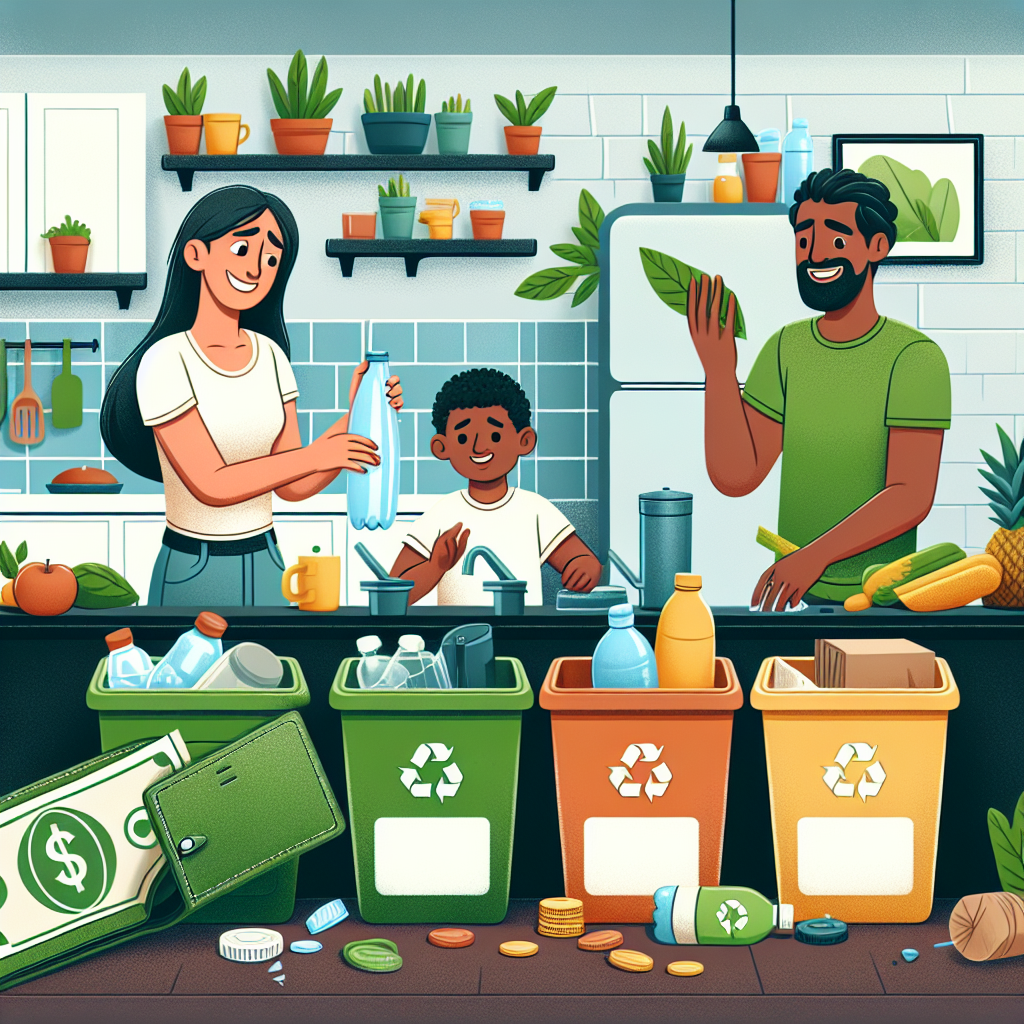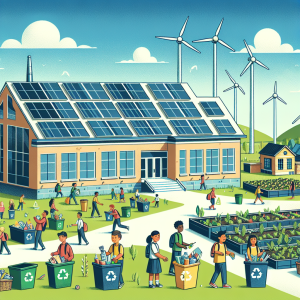Building a Zero-Waste Lifestyle
Building a zero-waste lifestyle is an increasingly popular goal for environmentally conscious individuals seeking to reduce their carbon footprint and promote sustainable living. This lifestyle focuses on minimizing waste production by making thoughtful choices about consumption, reuse, recycling, and composting. Adopting a zero-waste lifestyle involves a series of deliberate changes in daily habits and consumption patterns, all aimed at reducing the amount of waste sent to landfills or incinerated.
The journey to zero waste begins with a mindset shift from disposable living to sustainable consumption. The first step is understanding the importance of reducing waste and its impact on the environment. Over 2 billion tons of waste are generated globally each year, with a significant portion ending up in landfills, where it can leach harmful chemicals into the soil and produce methane, a potent greenhouse gas. This necessitates the adoption of waste reduction practices to mitigate environmental damage.
One of the fundamental practices is the principle of the 5Rs: Refuse, Reduce, Reuse, Recycle, and Rot. At the heart of this concept is Refuse—saying no to products that generate unnecessary waste, such as single-use plastics or excessive packaging. By refusing products that aren’t sustainable, individuals can drastically lower their waste output. Practically, this can involve opting for items with minimal packaging or choosing vendors that offer eco-friendly packaging solutions.
Next, the Reduce principle emphasizes consuming less and focusing on quality rather than quantity. This might involve purchasing high-quality, durable products instead of cheap, disposable items. It’s equally important to curb impulse purchases by planning shopping trips effectively, making lists, and sticking to them to avoid temptation and excess.
The Reuse principle focuses on maximizing the utility of items before discarding them. Items such as glass jars, cloth bags, and metal containers can be cleverly repurposed. For instance, glass jars can be used for storage, metal tins can be transformed into plant holders, and cloth bags serve as sustainable shopping companions. Swapping and borrowing are also under the reuse principle—tools, books, and children’s clothing can be shared within communities, extending their lifecycle.
Recycling is the next best option when reuse isn’t possible. Understanding local recycling programs and sorting waste accordingly plays a significant role in ensuring that materials like paper, plastic, glass, and metals are recycled efficiently. It’s essential to know what can and cannot be recycled to prevent contamination in recycling systems, which can lead to more waste being sent to landfills.
The final principle is Rot, which refers to composting organic waste. Food scraps and yard waste can be composted to create nutrient-rich soil for gardening. Composting not only reduces landfill waste but also enriches soil, helping plants grow healthily. Whether through community composting programs or personal composting systems, this process is fundamental to a zero-waste lifestyle.
Building a zero-waste lifestyle also involves making mindful purchases. Selecting products with sustainability certifications or opting for locally sourced items can reduce the overall carbon footprint associated with transportation and production. Investing in a reusable water bottle, metal straws, or bamboo utensils illustrates ways to minimize single-use items in daily life.
Moreover, personal care and cleaning routines can also align with zero-waste principles. Many commercial products come wrapped in plastic packaging and contain harmful chemicals, contributing to environmental degradation. Transitioning to solid shampoos, bamboo toothbrushes, and homemade vinegar cleaners are practical substitutes that help reduce waste.
Education and advocacy are also crucial components of a zero-waste lifestyle. Sharing knowledge within communities can inspire collective action toward sustainable change. Workshops, social media, and community groups serve as platforms to exchange tips and empower more people to engage in zero-waste practices. Consumers can further advocate for sustainability by supporting brands that prioritize environmental responsibility and pressing for corporate accountability.
Living a zero-waste lifestyle can be challenging, given the pervasive linear economy based on consumption and disposal. Convenience-driven societies often present obstacles in the pursuit of waste reduction. Still, perseverance and creativity can unlock numerous strategies for minimizing waste.
It’s important to take progressive steps and celebrate small victories. Transitioning to zero waste doesn’t happen overnight; it involves gradual changes and adaptation. Identifying what works personally and being patient with the process can lead to long-term sustainable habits.
Ultimately, building a zero-waste lifestyle contributes to a healthier planet. It fosters a sense of responsibility toward future generations, ensuring they inherit a world where resources are not squandered. By integrating the principles of refuse, reduce, reuse, recycle, and rot into daily life, individuals not only minimize waste but also champion a culture of sustainability and environmental respect. Through this commitment, it becomes possible to positively impact the Earth, encouraging a shift towards a more sustainable future.




